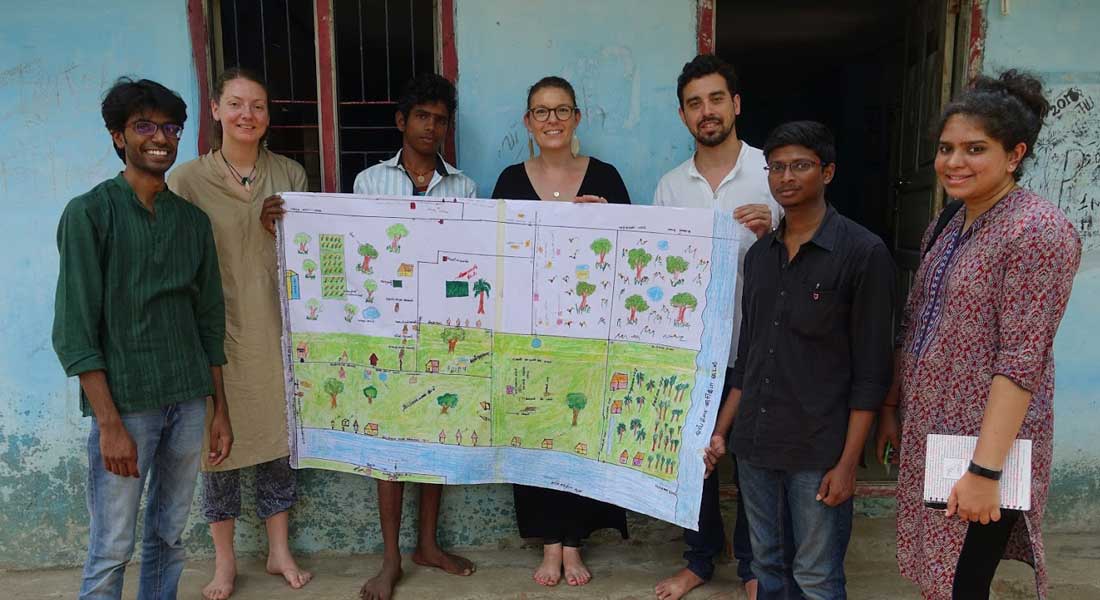Research Methodology and Ethics
Learn how to retrieve, review and interpret research findings and how to apply scientific methodologies in disaster management.

The course introduces the principal study designs, methodological approaches and ethical considerations in disaster research; with a focus on research development.
- Critical literature review for identification of relevant knowledge gaps, research problems and questions.
- Quantitative methods for primary and secondary data collection - including definition of outcomes and variables; target population; sampling; and questionnaire design. Central issues on data management, validation, and analyses using statistical software (e.g. SPSS) are also covered.
- Qualitative methods for primary data collection including focus group discussions; key informant interviews; and participant observation. Data management validation and analyses including field note analyses are also covered.
- Mixed methods approaches in terms of the rationale for use, common procedures, and limitations.
- Basic principles and statutes on research ethics focusing on the specific challenges within disaster research.
This course consists of a variety of teaching/learning methods (blended learning) ranging from class-based lectures, journal clubs, group work and student led presentations, as well as individual preparation and study time. All in-class sessions are moderated by faculty staff members. Students are expected to contribute actively through oral and written presentations, as well as constructive feedback to colleagues during sessions.
The teaching and learning methods could be listed as follows:
- Lectures - imparting knowledge concepts, theories and models
- Journal clubs - discussion of relevant papers with emphasize on analytical skills and knowledge gain
- Group work - guided with a set of questions or an exercise based on a specific case
- Presentations - of group and individual student assignments
On completion of the course, you will be able to:
- Critically appraise relevant scientific research methodologies and their application in disaster management.
- Retrieve and critically review scientific literature and information from peer-reviewed and grey literature sources.
- Identify research problems and formulate relevant research questions within the field of disaster management and define and delimit study objectives.
- Choose study designs and identify appropriate methods for data collection and analysis.
- Discuss possible ethical considerations and limitations.
- Critically interpret and discuss research findings in relation to existing evidence within the field.
- Formulate a consistent and clear synopsis in preparation for a small-scale research project.
- Communicate research findings according to the IMRAD structure for scientific literature
Participants must
- Hold a relevant bachelor degree or equivalent
- Have a minimum 2 years of relevant job experience
- Be proficient in English
- Be enrolled on the master's programme
Find detailed information about the current admission criteria.
Bishal Gyawali, Postdoc, Global Health Section, Department of Public Health, University of Copenhagen.
Anne Bach Nielsen, Postdoc, Global Health Section, Department of Public Health, University of Copenhagen.
Course details
| Duration: | 4 weeks |
| Dates: |
11-15 November 2024 + 6-24 January 2025 Course dates 2025/26 |
| Frequency: | Once every year |
| Place: | University of Copenhagen, Copenhagen, Denmark |
| Course fee: |
New course fees effective from Autumn 2024 |
| Level and credit: | Master's course; 7.5 ECTS |
| Examination date: | See exam dates |
| Application deadline: | Programme application deadline Non-EU/EEA citizens: 1 April EU/EEA citizens: 1 May |
| Admission: | Only available for students enrolled on Master of Disaster Management |
